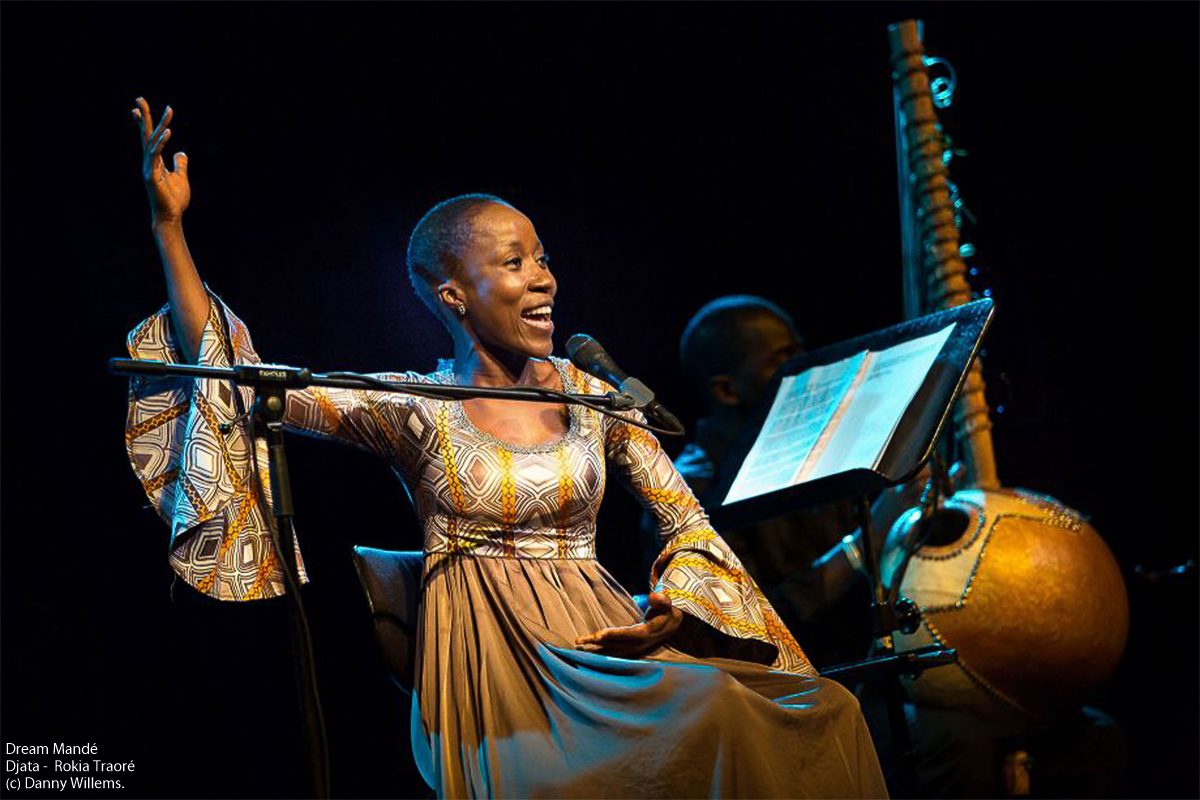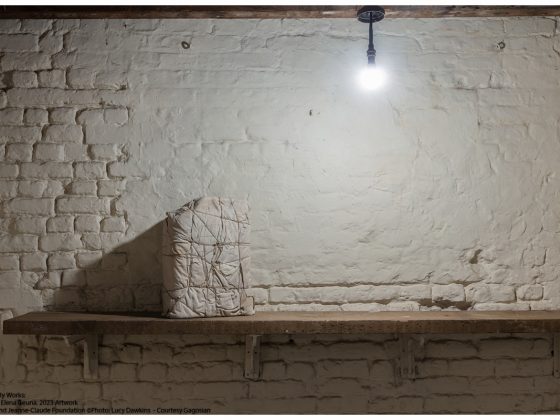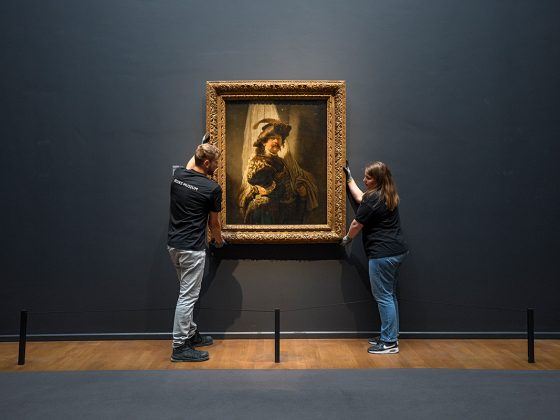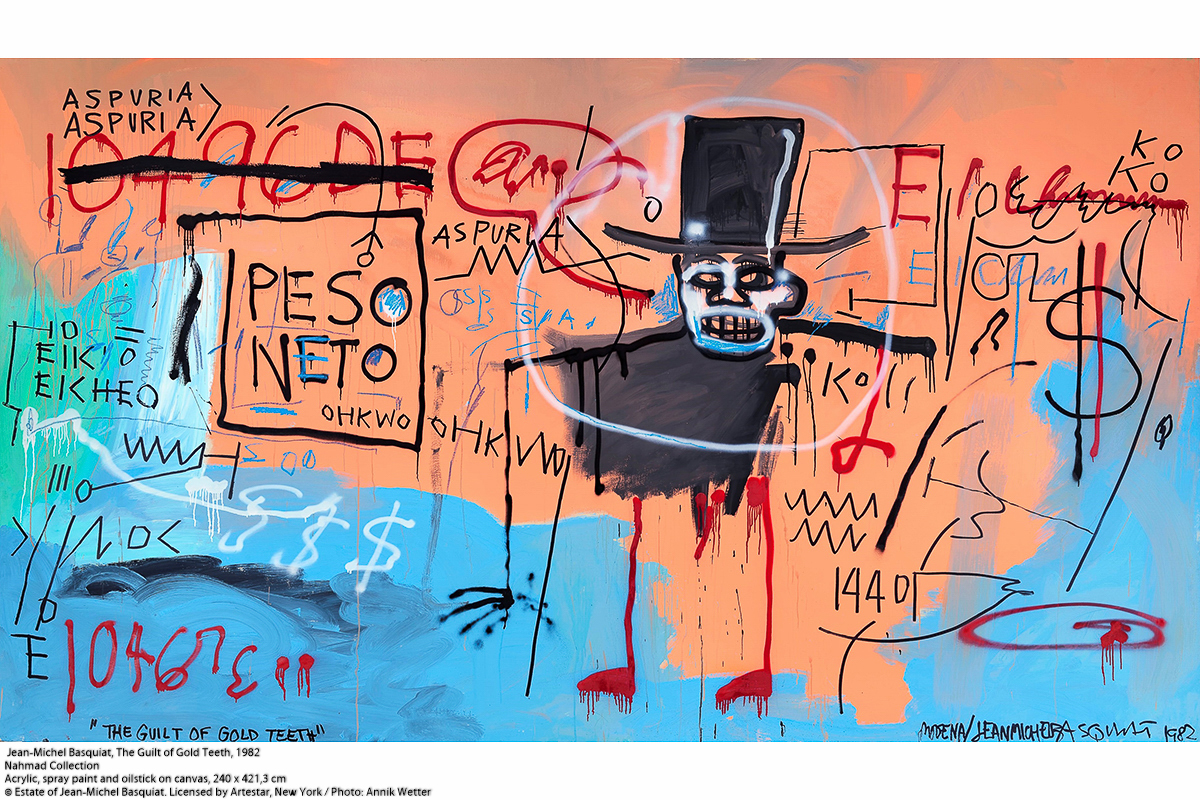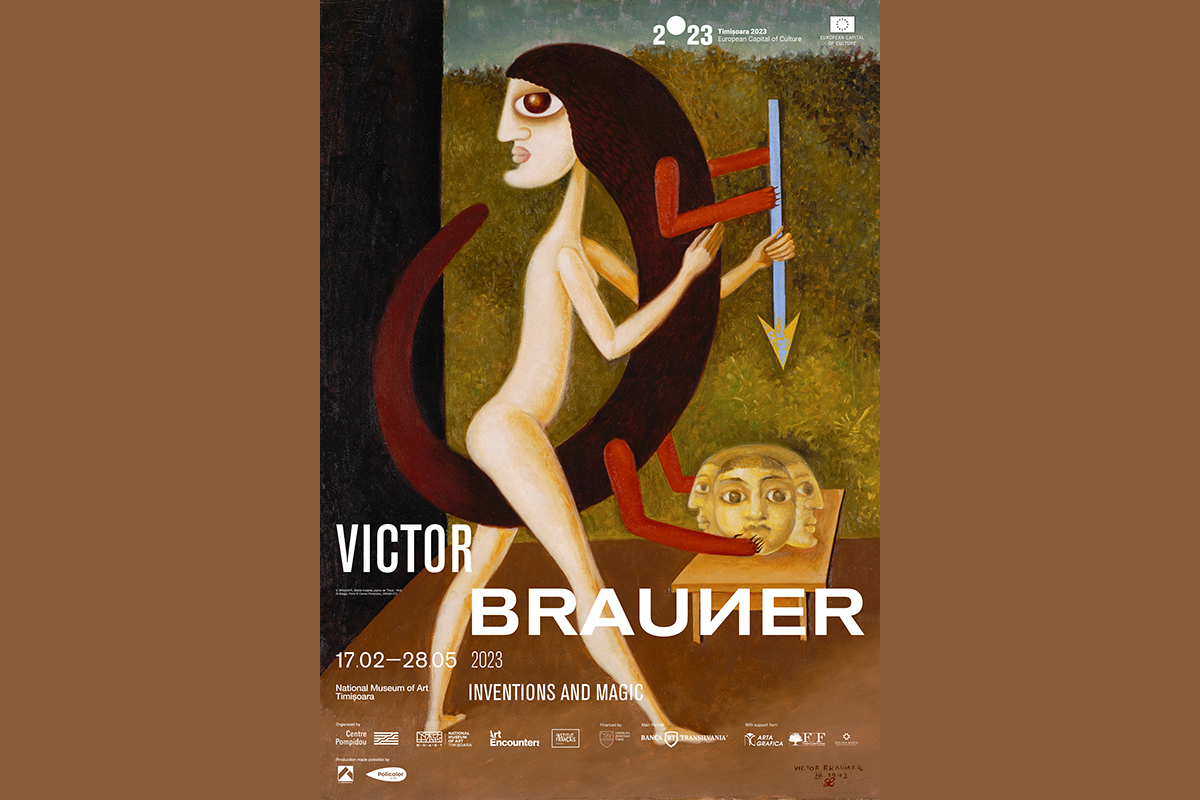After each royal audience, a griot stands and tells the story of what was just accomplished, so that the decision that was made becomes part of History. His second is the depository of that speech, made as material as leather, iron, or earth. The griot must tell nothing but the truth, nothing but what he has been told by another griot. His role is also to destroy the word so as to create another—that is, another kingdom.
” Rokia Traoré, in the 21st century, pays tribute to the ancient art of the griots of West Africa: accompanied by two musicians, she tells the epic of Emperor Sundiata Keita in 13th-century Africa. Her tale, in French, is interspersed with scenes performed by actors, classic Mandinka stories and songs, as they were transmitted to her by griots whose families have preserved, from one generation to the next, the immaterial treasure that is the history of a people transmitted through oral tradition. From prophecies announcing the miraculous birth of the man who would unite the Mandé people to the establishment of a charter of rights by an emperor who decided to base his reign on respect and not greed or violence, Dream Mandé is an astonishing tale come from the ancient past of Africa, at a time where the continent already developed its own energies and synergies.
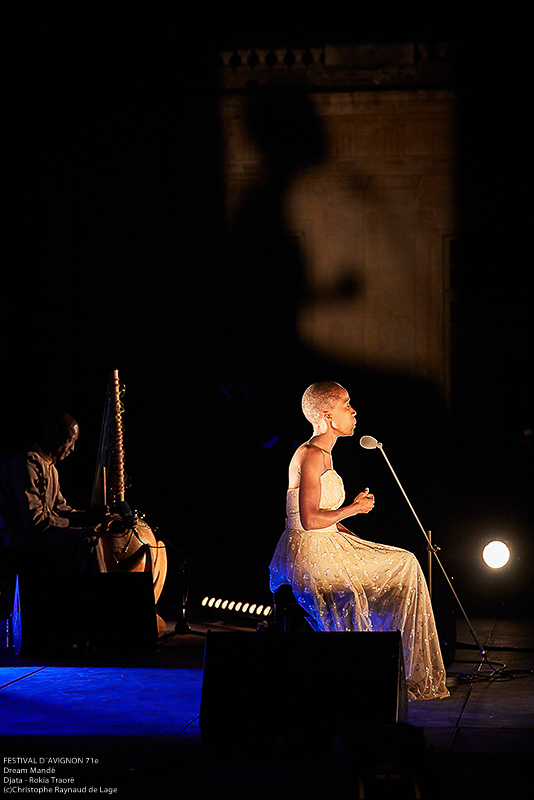
Dream Mandé – Djata is a musical story I wrote about the birth of the Mandé empire in the 13th century. This epic sometimes veers pretty close to the fairy tale, but unlike Greek mythology, which we know is about legends, this show is about kings who really existed. It’s the story of Sundiata Keita, from his birth to the foundation of the Mandé empire, as we know it through oral stories passed down in griot families. The griots aren’t tellers of tales whose job is to entertain people, they are the source of the history of West Africa. It’s through them that we know of Sundiata, who put an end to the reign of a totalitarian king, Soumaoro Kanté. He was the child announced by a prophecy, who was to unite the Mandé region and reign without ever resorting to violence to impose his will. His empire, one of the most powerful in the history of Africa, was based on the Kouroukan Fouga charter, which abolished slavery, defined the role of women, codified the alliance of autonomous kingdoms within the empire…
Rokia Traoré
Rokia Traoré
Few artistic careers are at once as free and as rooted in tradition as Rokia Traoré’s. Indeed, she has often been called unique, post-traditional, mutant, so easily she seems to find herself at unknown crossroads, at confluences both unpredictable and determined by her personal history.
Rokia Traoré’s voice is uniquely Malian in its power and tone, folk in its distance and precision, and rock’n’roll in its love for encounters, turbulences, and shock. What left an indelible mark on her? Serge Gainsbourg’s Aux armes et cætera, which her father played loudly in the morning, but also an Ella Fitzgerald LP, and albums by Joan Baez, Tracy Chapman, Mark Knopfler, and Ali Farka Touré, as well as cassettes she bought from griots later in Bamako, when her friends listened only to rap. If Rokia Traoré is seen as an icon of world music, celebrated for the elegance of a music embodying the culture without borders of a new century, she is also, thanks to her unique career choices—a show written with Toni Morrison and directed by Peter Sellars; her assimilation of the legacy of the griots, even though she isn’t part of their caste—the symbol of a changing Mali. At the Festival d’Avignon, she presents a new creation that shows the boldness of her culture and of her career as a singer.
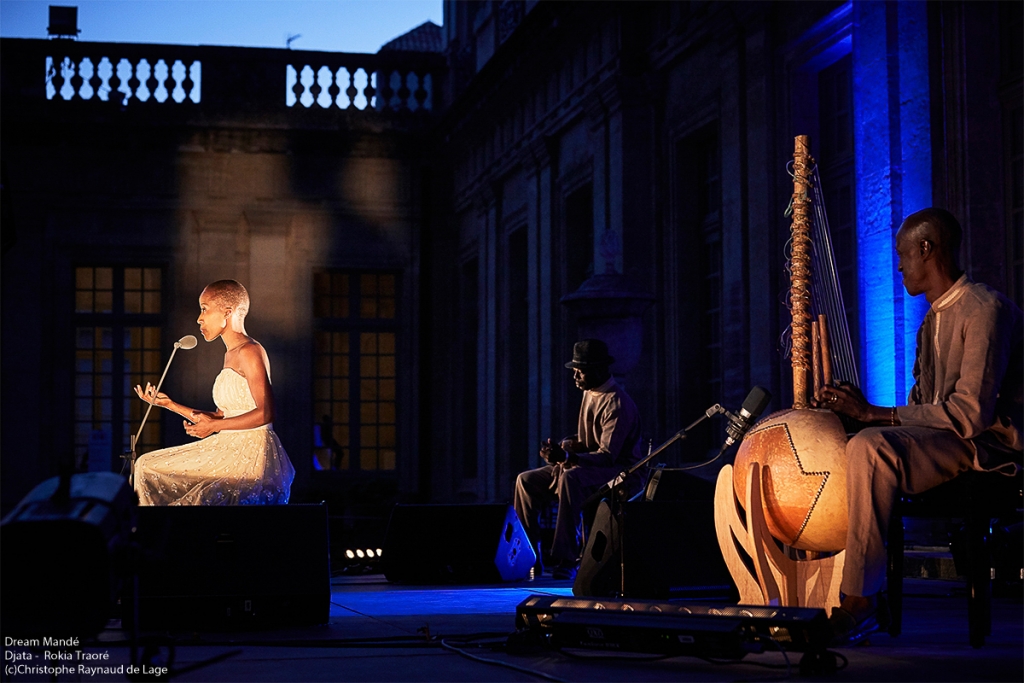
Texte, conception, musique : Rokia TRAORE
Lieu : Cour du musée Calvet
Photo : Christophe RAYNAUD DE LAGE
Sundiata Keita
The epic of Sundiata Keita is at once the history and the legend of West Africa. From 1235 to 1255, Sundiata Keita reigned on the Mandé empire, which he unified and pacified after besting Soumaoro Kanté, a deceitful and cruel king. A mixture of indisputable facts and fantastic elements, the story of his life and reign has been transmitted for centuries via the voice of Mandinka griots. Prophecies, magical spells, and war exploits are retold to celebrate a king attentive to his people’s rights, as listed in the founding charter of Kouroukan Fouga.
©FDA
JULY 21, 22, 23, 24, | COUR DU MUSÉE CALVET



